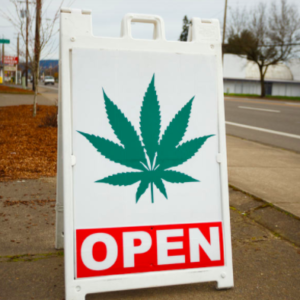In response to the coronavirus outbreak, governors and mayors have issued stay-at-home orders covering well more than half the U.S. population. All “non-essential” businesses are ordered closed, and only “essential” workers are allowed on the job.
Which raises the question: Who is “essential?” Doctors and nurses certainly are, and first responders, too. Grocery stores have to stay open, and vital supplies must be trucked across America’s highways.
And then, of course, there are the florists.
When New Hampshire Gov. Chris Sununu announced his state was going on stay-at-home lockdown, he issued a list of “essential” jobs and services exempted from the no-go order. Among them: “Workers supporting…florists and farm stands.” Is a bouquet of roses and a loaf of farm-fresh bread an “essential” service? It is in New Hampshire.
In Ohio, where Republican Mike DeWine was widely praised for being one of the first governors issuing a stay-at-home order, the state’s list of vital tasks includes union organizing and growing pot. “Critical labor union functions” are exempt, as is “licensed marijuana production.”
In fact, “licensed medical marijuana use, medical marijuana dispensaries and licensed medical marijuana cultivation centers” are listed with “businesses that provide food, shelter, and other necessities of life.”
No doubt, many Ohio college students agree.
Protecting pot sales is also a priority in Colorado, where Gov. Jared Polis (D) treats marijuana dispensaries the same as grocery stores and pharmacies — open for business during the coronavirus crisis. Also listed as Colorado essential businesses? Liquor stores, firearm stores and Uber/Lyft.
To paraphrase Dean Wormer of (fictional) Faber College, “Drunk, armed and mobile is no way to go through life, son.” But it’s how they’re fighting the coronavirus in the Rocky Mountain state.
The oddities of these executive orders may make you chuckle, but for small business owners forced to shut down and unemployed workers stuck at home, it’s frustrating.
What do the restaurant workers, realtors and radio salespeople think as they see clerks serving customers at convenience stores, truck stops and hardware stores? Why are those workers more “essential” than they are?
In Ventura County, California, the owner of the local Mister Softee ice cream store decided on his own to close his business for the cause of public safety.
“As much as I need to be open, I can’t see ice cream as essential to people,” Jeff Hiller posted on Facebook. “Essential is breakfast, lunch and dinner for those who can’t cook or get to the store before the shelves are empty.
“I wish all the non-essential places would just close,” Hiller said.
Of course states exempt “workers providing COVID-19 testing” and “hospital and laboratory personnel.” After all, the point of the order is to fight a viral pandemic.
But “Laundromats, dry cleaning, and laundry services” — which are exempt in nearly every state? Nobody has suggested America can “medium starch” its way out of this crisis. And whose laundry are they doing during a statewide shutdown, anyway?
Perhaps the many lawyers, accountants and bank tellers, who are apparently considered too vital in the fight against coronavirus to leave at home in many states. (When you’re fighting a virus, apparently it’s important to keep your receipts.)
Oh, and lumberjacks. California, New Hampshire and Pennsylvania all exempt “workers who support the manufacture and distribution of forest products, including timber.”
In many states, governors are ordering people not to travel, but hotel workers are exempt from the stay-at-home order. Every state has some exemption for religious workers, but they also forbid attendance at religious ceremonies.
Political leaders like President Trump are warning that Americans’ tolerance for the draconian restrictions currently in place won’t last forever.
One sure way to undermine support for these edicts is if they are viewed as arbitrary or unjust. Behavioral science indicates that human beings are hard-wired to desire fairness and have a powerful emotional reaction against unfair treatment.
And then there are the harmful impacts on people’s lives and incomes that will last long after these executive orders are lifted.
In New Hampshire, Gov. Sununu long resisted issuing a stay-at-home order. He argued that, thanks to so many Granite Staters practicing responsible social distancing and businesses choosing to shut down on their own, a formal edict wasn’t necessary.
Those voluntary practices haven’t changed, in New Hampshire or across the nation.
What has changed is that, in state after state, small businesses who’ve been clinging to life while carefully serving their customers now no longer have that choice. This order will absolutely kill some American businesses.
It’s enough to drive a law-abiding citizen to drink. And if you drink too much, don’t worry. New Hampshire’s got you covered.
“Workers in recovery centers and sober homes” are exempt, too.

